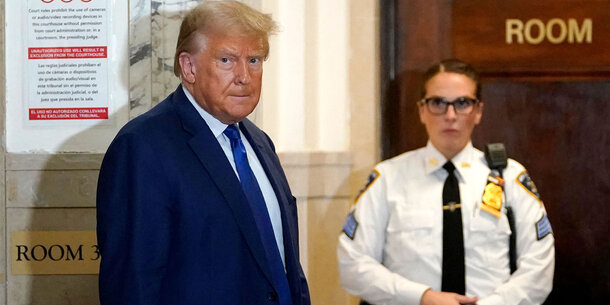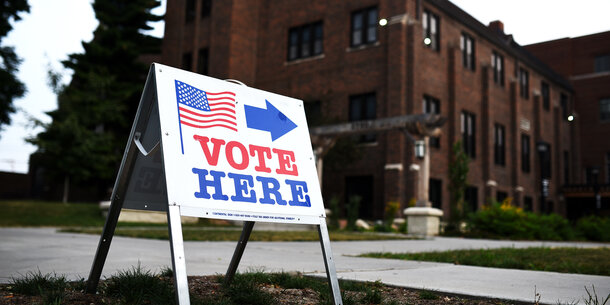On March 27, 2018, the Southern Poverty Law Center and the law firm Simpson Thacher & Bartlett LLP filed a class-action lawsuit on behalf of Mississippians with felony convictions who are permanently barred from voting despite having completed the terms of their sentences. Plaintiffs challenged two provisions of Mississippi’s constitution: Section 241, which provides for the permanent disenfranchisement of people convicted of certain felonies, and Section 253, which authorizes the legislature to restore a person’s voting rights by a two-thirds vote of both legislative houses. Plaintiffs alleged that Section 241 violates the Eighth Amendment’s prohibition against cruel and unusual punishment and the Fourteenth Amendment’s Equal Protection Clause, and Section 253 violates the First Amendment’s right to political expression and association and the Fourteenth Amendment’s Equal Protection Clause.
On August 7, 2019, the district court denied plaintiffs’ motion for summary judgment and granted defendant’s motion for summary judgment as to all claims except plaintiffs’ Fourteenth Amendment challenge to Section 253. Both the plaintiffs and the defendant appealed to the U.S. Court of Appeals for the Fifth Circuit.
On August 4, 2023, a three-judge panel of the Fifth Circuit held that Section 241’s lifetime voting ban violates the Eighth Amendment’s prohibition against cruel and unusual punishment.1 In so holding, the panel reasoned there is a “national consensus” against lifetime voting bans, as 35 states and Washington, DC do not have such a policy. In addition, the panel observed, the number of states with any form of a lifetime ban has decreased from 27 to 16 within the last 50 years, “demonstrat[ing] that society has turned away from that punishment.” The panel then concluded that Section 241’s lifetime ban is cruel and unusual because “[p]ermanent denial of the franchise…is an exceptionally severe penalty,” it “applies equally to all members of the class, regardless of their underlying crime or…individual mental state…[and] does not reflect society’s measured response to a [person with a felony conviction]’s moral guilt,” and it does not serve a legitimate penological purpose.
On August 17, 2023, the State of Mississippi asked the full Fifth Circuit to rehear the case. On September 28, 2023, the court granted the Secretary’s request and vacated the three-judge panel’s decision.
On December 6, 2023, the Brennan Center and co-counsel at Latham & Watkins LLP filed an amicus brief on behalf of 30 faith-based groups and religious leaders in support of the plaintiffs. The brief argues that amici’s faith traditions, while varied and diverse, all agree that Mississippi’s lifetime voting ban is morally indefensible because the imposition of such a harsh punishment: (1) stands in marked contrast to the values of mercy, forgiveness, compassion, redemption, and restorative justice that are embraced by all of amici’s religions; (2) forecloses redemption and rehabilitation without moral or penological justification; and (3) offends society’s evolving standards of decency, standards shaped in large part by the values of amici’s faith traditions. As a result, the faith-based groups and religious leaders argue that Mississippi’s lifetime ban violates the Eighth Amendment’s prohibition against cruel and unusual punishment.
The full Fifth Circuit reheard the case on January 23, 2024.
On July 18, 2024, the en banc Fifth Circuit, on a 13–6 vote, overturned the three-judge panel’s ruling that Section 241’s lifetime voting ban violates the Eighth Amendment’s prohibition against cruel and unusual punishment.
On November 15, 2024, the plaintiffs filed a petition for a writ of certiorari asking the Supreme Court to review the en banc Fifth Circuit’s ruling. The Court denied the plaintiffs’ petition on January 27, 2025.
Documents
- District Court Order (August 7, 2019)
- Panel Opinion (August 4, 2023)
- Defendant-Appellant’s En Banc Brief (October 30, 2023)
- Plaintiffs-Appellees’ En Banc Response Brief (November 29, 2023)
- Amicus Curiae Brief of the Separation of Powers Clinic in Support of Defendant-Appellant (November 2, 2023)
- Amici Curiae Brief of Faith-Based Organizations and Religious Leaders in Support of Plaintiffs-Appellees (December 6, 2023)
- Amici Curiae Brief of the Cato Institute and Due Process Institute in Support of Plaintiffs-Appellees (December 6, 2023)
- Amici Curiae Brief of the American Probation and Parole Association, et al. in Support of Plaintiffs-Appellees (December 6, 2023)
- Amici Curiae Brief of the District of Columbia, et al. in Support of Plaintiffs-Appellees (December 6, 2023)
- Amici Curiae Brief of Reason Foundation, ACLU, and ACLU of Mississippi in Support of Plaintiffs-Appellees (December 6, 2023)
- Amici Curiae Brief of National and Mississippi Voting Rights, Civil Rights, and Racial Justice Organizations and Coalitions in Support of Plaintiffs-Appellees (December 6, 2023)
- Amicus Curiae Brief of Rutgers Law School International Human Rights Clinic in Support of Plaintiffs-Appellees (December 6, 2023)
- En Banc Opinion (July 18, 2024)
Related Blogs and Reports
- Bishop Ronnie C. Crudup Sr., Mississippi Must End Its Indefensible Lifetime Voting Ban, January 26, 2024
- Patrick Berry, Court Strikes Down Mississippi’s Lifetime Felony Voting Ban, August 18, 2023
Endnotes
-
1
The three-judge panel also affirmed the district court’s decision denying plaintiffs’ Fourteenth Amendment challenge to Section 241’s lifetime ban, holding it was foreclosed by the U.S. Supreme Court’s decision in Richardson v. Ramriez, in which the Court held that Section 2 of the Fourteenth Amendment grants states an “affirmative sanction” to deny voting rights to people convicted of crimes, even after they have completed their sentences. The panel also held that plaintiffs lacked standing to challenge Section 253’s legislative process for restoring voting rights.

